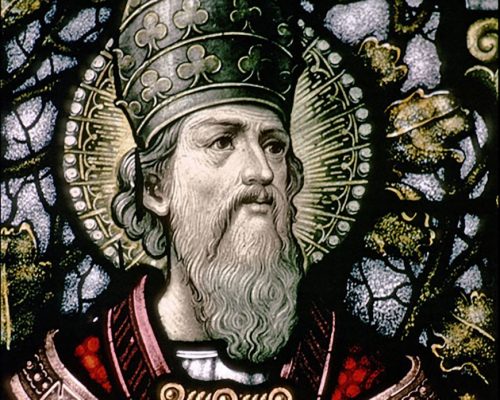Q: In preparing to read the Scripture readings at the coming Sunday Masses, I noticed that the readings for the last Sundays of Ordinary Time and the First Sunday of Advent all highlight the final, glorious coming of Christ. Why is that? Also, why is Advent the beginning of the liturgical year? Thank you.
A: The liturgical year is one of the ways the church remembers and celebrates the life, death and resurrection of Jesus Christ. The prayers and Scripture readings of Advent help us to prepare for Christmas, when Christ’s first coming is celebrated, and also for Christ’s final coming at the end of time. What a celebration that will be!

Around the year 1000, the Mass prayers for the Advent season began to be placed first in the Missal, and Advent came to be seen as the beginning of the liturgical year.
While Advent is the first of the liturgical seasons in chronological order, it is not the first in theological significance. That preeminence belongs to the Paschal Triduum: “the sacred Paschal Triduum of the Passion and Resurrection of the Lord shines forth as the high point of the entire liturgical year” (“Universal Norms for the Liturgical Year and the Calendar,” No. 18). This is why some have suggested that the liturgical year should begin with Easter and conclude with the Advent/Christmas seasons, and there is some merit in this proposal.
Preparing for eternity
Since the First Sunday of Advent is the beginning of the liturgical year, it has often been chosen as the date for introducing new liturgical books.
On Nov. 29, 1964, the First Sunday of Advent, the vernacular was used in the Mass in the United States for the first time.
Similarly, the present Roman Missal came into use on the First Sunday of Advent, Nov. 27, 2011. This Missal, and every Missal that the Roman Catholic Church has used or ever will use, is meant to prepare us for the coming day of the Lord, when human time will become God’s eternity.
My Benedictine confrere Father Emeric Lawrence was correct when he wrote in a homily for the 32nd Sunday in Ordinary Time in 1987: “Today, as always, the chief concern of the liturgy is to help us build up a truly Christian mentality about our life in this world — the kind of healthy Christian mentality that will best prepare us for life in the world to come.”
Similar themes
In the pre-Vatican II liturgy, the last Sunday of the liturgical year had the theme of Christ’s return in glory on the final day, just as the First Sunday of Advent did then and does now. In antiquity, the Roman Church celebrated an Advent season of five weeks.
Pope Gregory the Great (pope from 590 to 604) reduced the number of Advent Sundays to four in his Sacramentary for the city of Rome. (Maybe people were having trouble waiting so long to open their Christmas presents.). Eventually this pattern was adopted throughout Western Europe. But the last Sunday before Advent retained its Advent theme of the second coming of Christ, as noted above.
When the liturgical calendar was reformed in 1969, the feast of the Kingship of Our Lord Jesus Christ moved from the last Sunday in October to the last Sunday in Ordinary Time, which is now the solemnity of Our Lord Jesus Christ, King of the Universe.
This year’s celebration of this solemnity marks the closing of the Extraordinary Jubilee of Mercy. The Scripture readings for the previous Sunday, the 33rd Sunday in Ordinary Time in cycles A, B and C of the Lectionary for Mass have themes of vigilant waiting for the glorious return of Christ. Perhaps this helps explain why Ordinary Time slips very easily and gradually into Advent.
In an article in “The Oblate” published at St. John’s Abbey in November 1939, Rev. Dr. Pius Parsch explained that “the mysteries of Christ are re-lived in the church’s year so that we may share in them, so that we may enter into them, make them our own, put on Christ, and really reproduce His life and action in our souls.”
Each liturgical year can make our likeness to Christ more complete and perfect. And, at our death, we will be prepared to enter the eternal year of heaven.
This is a big task, and that is why we need a number of liturgical years to rehearse the mysteries of Christ in our lives. We welcome another liturgical year on the First Sunday of Advent, Nov. 27.
Benedictine Father Michael Kwatera, a monk of St. John’s Abbey in Collegeville, serves as the abbey’s director of liturgy. Please send your questions on liturgy to him at mkwatera@csbsju.edu or at St. John’s Abbey, P.O. Box 2015, Collegeville, MN 56321-2015.






















